

Company D, 42nd Engineers
45th Company, 20th Engineer Regiment
27th Company, 20th Engineer Regiment
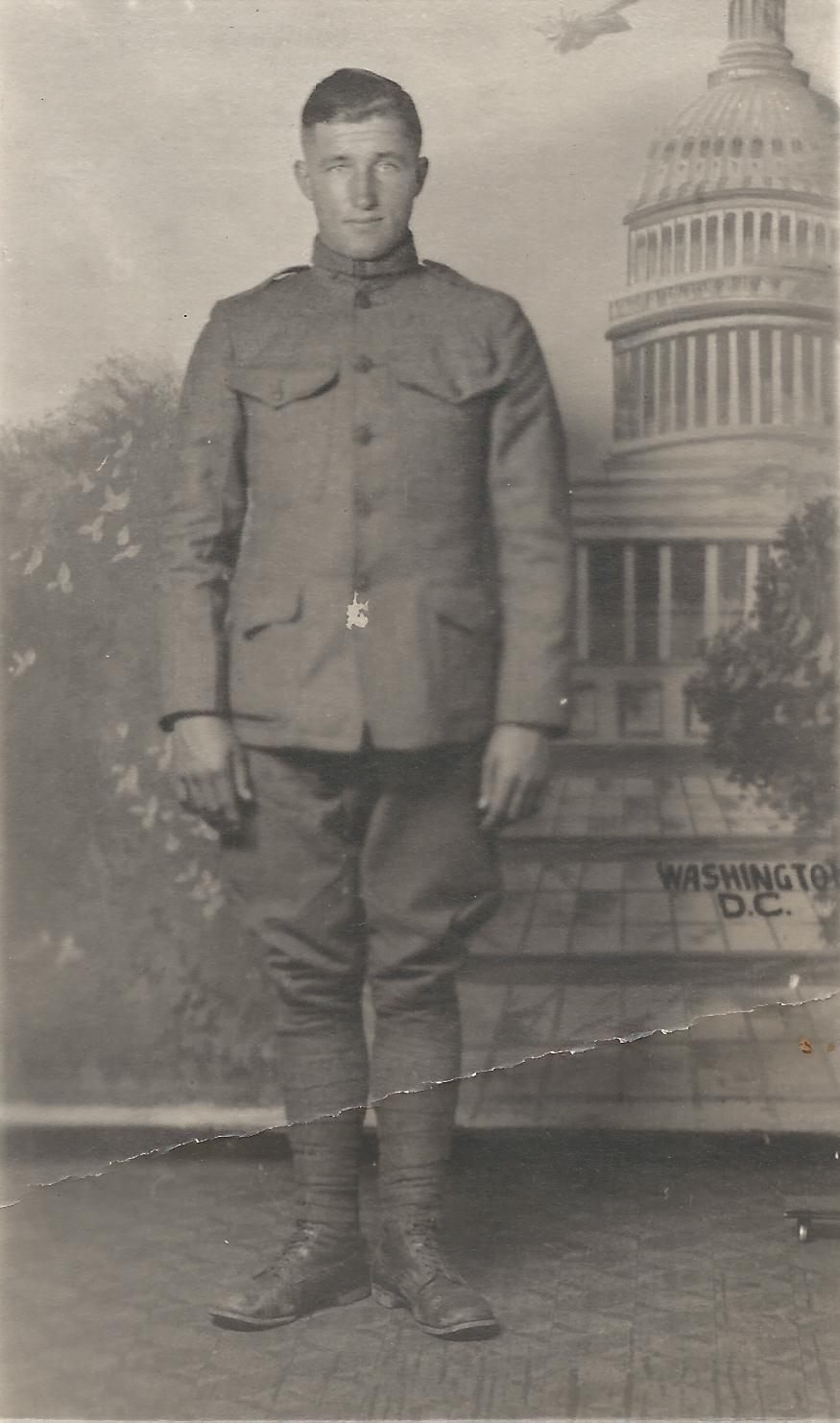
Stephen enlisted in the army February 25, 1918, quite possibly drawn by the advertisements circulated in timber magazines. There had been a concerted effort to enlist men experienced in the logging industry to join "The Largest Regiment in the World," the Twentieth Engineers. (By Armistice Day there were 30,000 soldiers in the regiment.) An advertisement from The Timberman, February 1918, emphasized that "this is no 'white-collar' job. Skilled men are needed--men who know how to work without supervision." A list of work positions was included, many of which Stephen would have had experience with. Most of the work he would do, he had done with his father in the woods of Minnesota--felling trees and skidding logs. The ads also informed applicants that men subject to draft should have a number so low that they do not come within the current quota of their draft board. If they had a higher number, they needed permission to enlist in the 20th Engineers, and "this permission is granted only to men who are qualified by reason of experience in woods, sawmill work or similar work."
One of the first requests to the US from their French and British allies in World War I was for regiments of trained lumbermen. It was more feasible to utilize the timber of French forests than to attempt shipping the huge amounts needed. The Allies asked for assistance from the U.S. Forest Service, state foresters, and lumber trade associations to recruit experienced foresters, loggers, and sawmill workers. These men quickly and efficiently produced wood for "building roads and railroads, constructing barracks, erecting telephone poles, supporting trenches, and other building and construction projects...the 20th (Engineers, forestry unit) would be referred to 'not as a regiment except in name, but a great manufacturing establishment.' The forestry units would greatly exceed all expectations of production. The mills produced over three times their rated capacity. During the month of October 1918 alone, over 3 million board feet was cut by the forestry troops. This high level of work efficiency would continue beyond the end of the war, as production continued until May of 1919 in order to fill previously arranged purchase contracts."
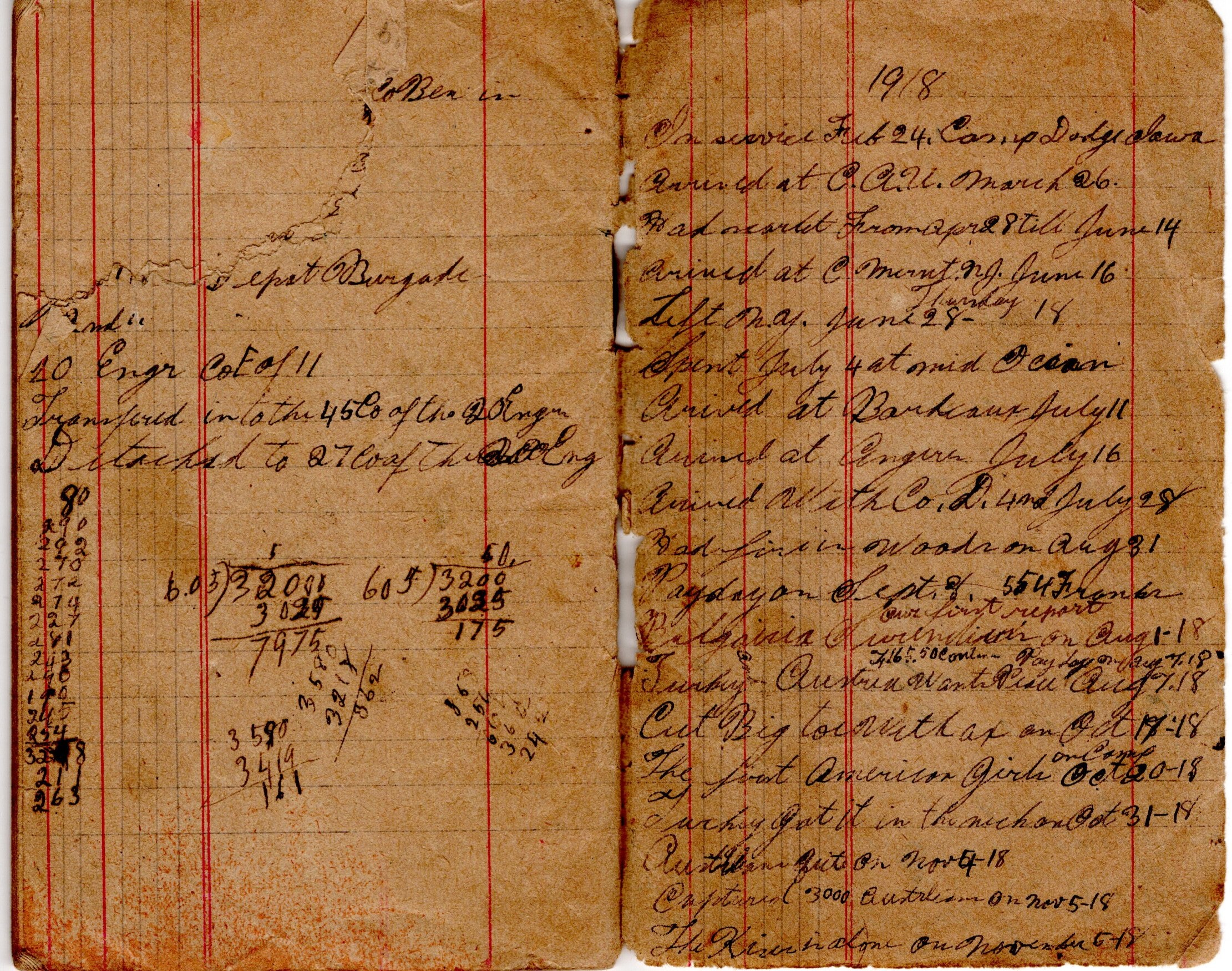
Stephen Chouinard kept a diary of his time in the army. He wrote just a few words on days when he changed locations, had different duty, or something of importance in the war effort occurred. Most of the following is from his diary.
He wrote that he began service with training at Camp Dodge, Iowa. On March 26 he arrived at Camp American University. On June 16 he arrived at Camp Merritt, New Jersey, the site where troops heading to Europe were assembled and deployed. He left from New York by ship on June 28. He remarked that he spent the Fourth of July in the middle of the ocean. On July 11, the ship arrived at Bordeaux, France.
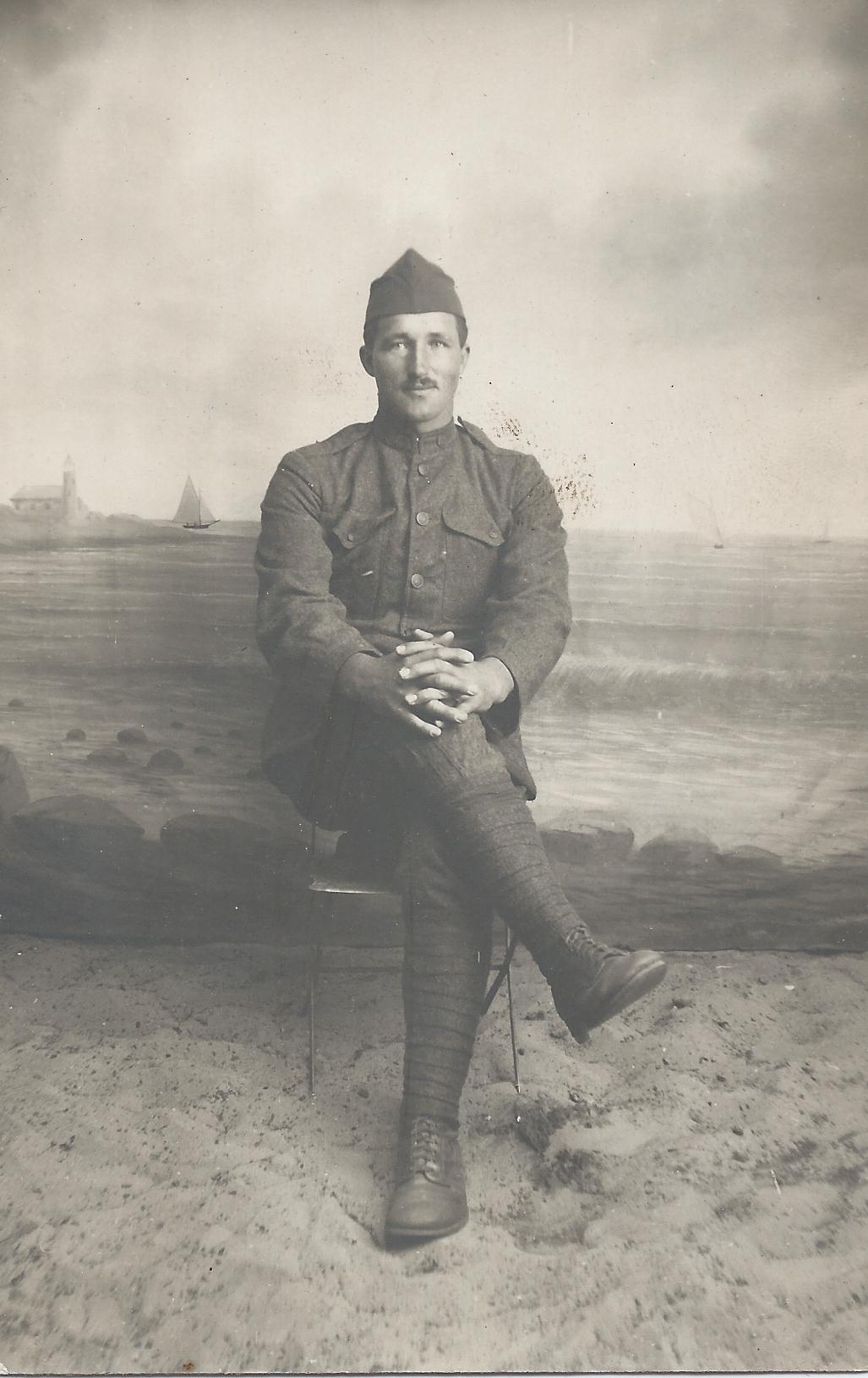
July 29, 1918, Steve arrived with Company D of 42nd Engineer Regiment, (which had been redesignated the 45th Company of the 20th Engineer Regiment) probably to begin working near Dax. On August 31, he reported that there was a fire in the woods. From Major Berry's story on the 20th Engineers website, the burn was described as just north of Dax in the Ponteux/Lue/Parentis areas affecting 30,000 to 40,000 trees previously paid for by the American Expeditionary Force and twice that many purchased by the Canadians. The French agreed to a price on the burned timber of 70% of its pre-burn value. The Americans agreed knowing that the killed trees were as good as green for early cutting, and they would only agree to take trees big enough to make ties. Steve did not work in the Burned Area then, but later he would have to.
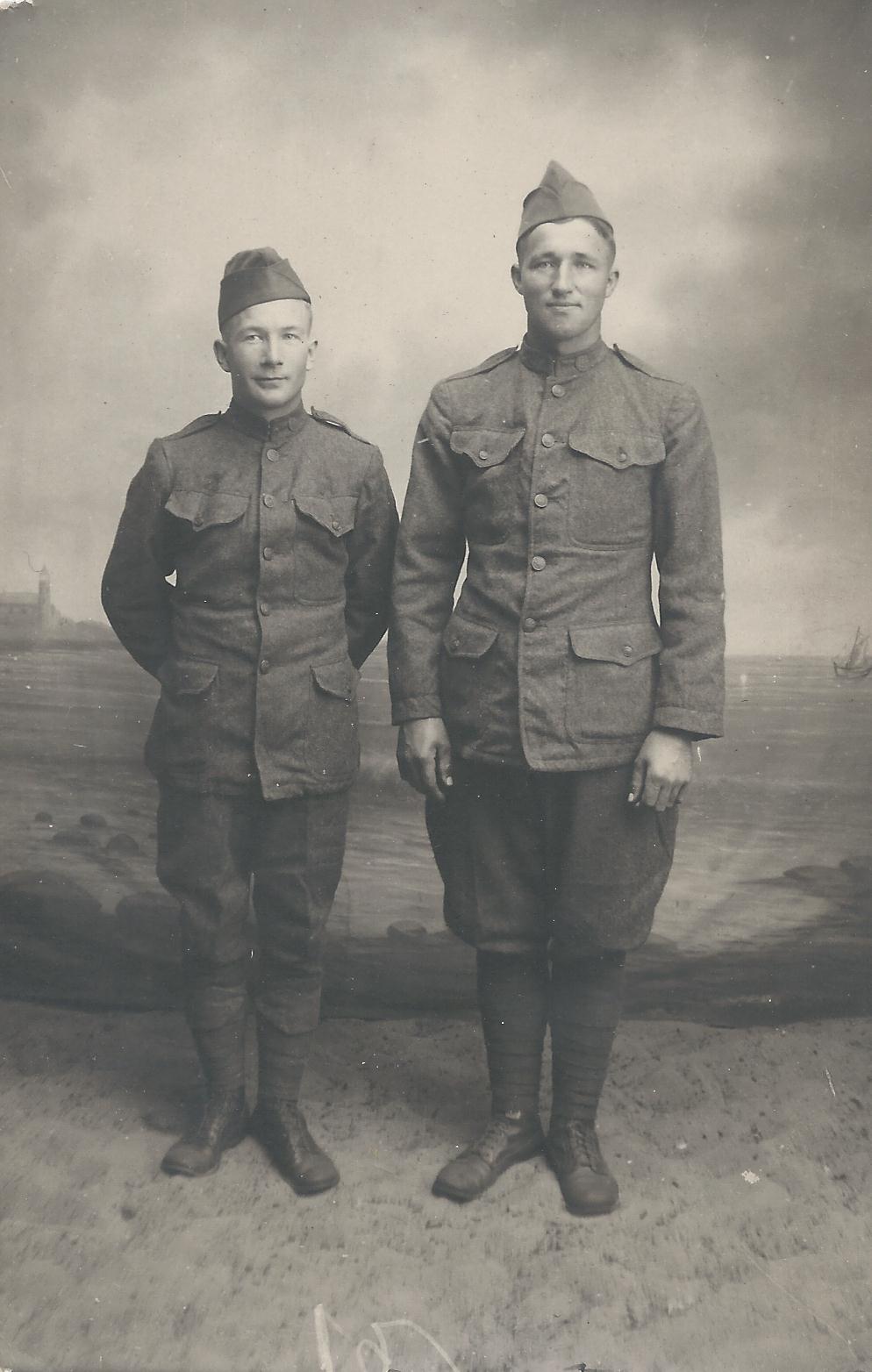
Stephen Chouinard with his best friend, Lloyd Tibbs
The work that Steve did while was exactly as had been advertised in the timber magazines. He cut trees and skidded logs. His good army friend, Lloyd E Tibbs, worked with him. They did not work on the battle front. The lumber that was produced in southwest France where Steve was located was moved where it was needed. The men were all expected to work hard and quickly. Steve didn’t write much about his daily work unless something unusual happened. On October 17 he wrote, "Cut big toe with ax." He didn't report any other injuries to himself or others in the summer and fall of 2018.
But he did write about important happenings in the War. He had gone into service in the last year of the War. There were signs of the War ending: August 1 "Bulgaria surrendered"; August 7 "Turkey and Austria wants peace"; October 31 "Turkey got it in the neck""; Nov 4 "Austrians quit". November 5 "30,000 Austrians captured…the Kaiser is alone"; and finally on Nov 11, 1918 he wrote, "Armistice is signed. Bells, guns, and a grand celebration 8:15 o'clock evening. Our thoughts of home."
Steve and others of the 20th Engineers, like all other troops, thought that with the War over they would soon be headed home. Many troops WERE sent home soon after the Armistice, but many in the 20th Engineers had to wait. The 20th Engineers hurried to complete their projects, to plan, pack, and speculate about when their turn would come to leave. But their Regiment had been included in plans to help for a time with Reconstruction in France. Companies of the 20th Engineers had been relatively stationary during the War, logging and sawing lumber which was sent to other places. Now the companies were broken up and moved around to take the places of detachments that had been sent home. Steve wrote that he was transferred from the 45th Company, then detached to the 27th Company. The foresters of the 20th Engineers helped with various projects including extensive road reconstruction and especially they had to help log the Big Burn area caused by the fire Steve had written of in his diary of August 31.
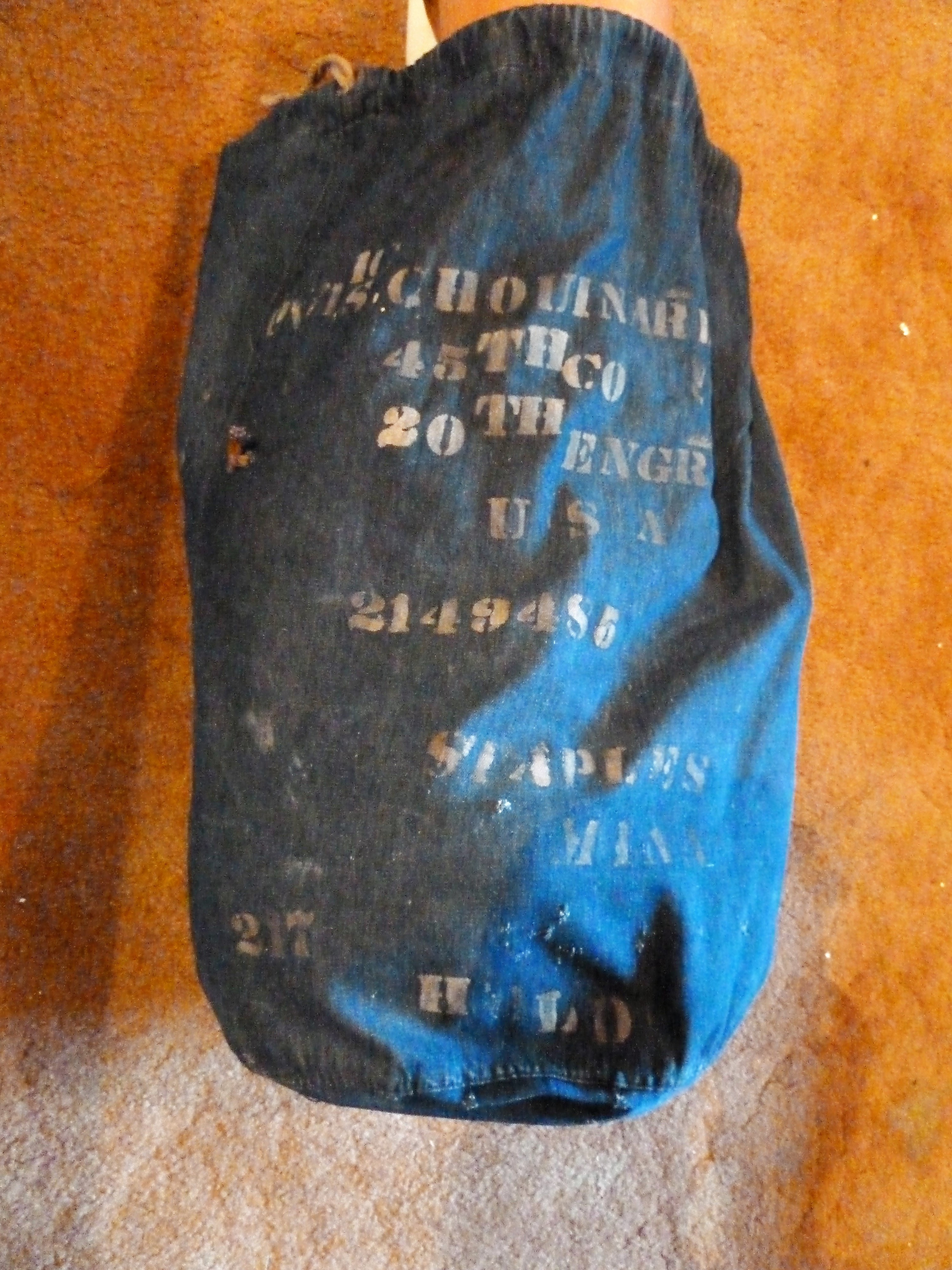
Steve was obviously missing home and looking about him to take comfort in nature. On November 10 he wrote, "Missed deer hunting the first time in the length of a year in Minnesota." On November 18 he wrote that he saw one rabbit; on November 19, "First ice at LaManche." (a town just north of Bordeaux--his detachment must have been moved there); November 20, "Seen the first wild ducks." Judy Chouinard Kirk/Rice, Steve's daughter said that while in the army in France, Steve fished when he could. He and his army buddies had to pay to fish in the river. The mayor of the town they were near told the soldiers he owned the river and took their payments. Steve would chuckle when he told that story to his children.
Steve's detachment, after the Armistice, must have continued to log because he wrote on
November 22, his birthday, "It rained. When I was 24 years old I skidded logs north of
Foresters Cabin No. 6." But on November 28, Thanksgiving, Steve and the rest of his
Company enjoyed, "The biggest and best dinner we ever had by M. Peterson, L.A. Ward,
Lee Harter, F. Gotfried, J.A. Olson, L.E. Tibbs, and S. Chouinard in the army on
Thanksgiving. Dinner was at LaManche. Dinner was chocolate, turkey, celery, pumpkin pie,
bread, butter, oranges, apples, peas, white grapes, mashed potatoes, gravy. Some dinner."